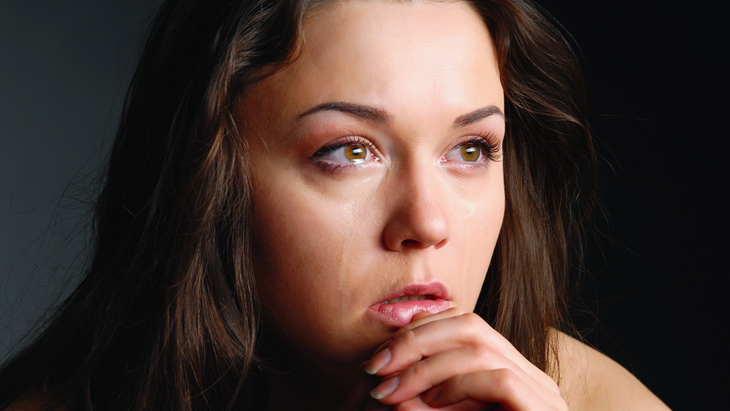Psychotic depression: can it be treated?
By Kathryn Senior on 15 July 2022
Psychotic depression is a mental disorder in which clinical depression, which is a difficult enough condition to experience on its own, is combined with psychotic symptoms. This makes things much worse, and explains why psychotic depression affects roughly a quarter of all people who have to be admitted to hospital with depression. It needs urgent and specialist treatment.
Psychotic depression: can it be treated?
Psychotic depression is a mental disorder in which clinical depression, which is a difficult enough condition to experience on its own, is combined with psychotic symptoms. This makes things much worse, and explains why psychotic depression affects roughly a quarter of all people who have to be admitted to hospital with depression. It needs urgent and specialist treatment.
Fortunately, the mental health care and treatment that is available for psychotic depression is generally very effective and can result in recovery relatively quickly, usually within a year. If you develop psychotic depression, specific drugs will be the mainstay of your treatment but other therapies such as electroconvulsive therapy (ECT) and behavioural therapies may be used.
This article on psychotic depression is written by Kathryn Senior, a freelance journalist who writes health, medical, biological, and pharmaceutical articles for national and international journals, newsletters and web sites.
What are the symptoms?
The term psychosis is used to describe a mental condition that makes someone unable to tell the difference between what’s in their imagination and what’s happening in the real world. Some people who experience psychosis describe it as like living a ‘waking dream’.
- Psychosis is a symptom that can occur alongside several other mental health conditions. People with psychotic depression experience both the typical symptoms of clinical depression and the additional psychotic symptoms.
- Symptoms of clinical depression include emotional symptoms such as chronic low mood, feelings of hopelessness, irritability and lack of confidence, plus physical symptoms such as loss of appetite, loss of libido and trouble sleeping at night/sleeping during the day.
- Psychotic symptoms can include:
- Hallucinations – hearing or seeing things that are not there
- Delusions – holding unusual beliefs that other people don’t share or that are untrue
The difference between psychotic depression and other psychotic disorders is that people with psychotic depression are aware that their experiences that show themselves as psychotic symptoms are not real. A person suffering from psychotic depression may appear withdrawn and be difficult to talk to, may neglect personal grooming and hygiene, and may get angry for no apparent reason. Psychotic depression also carries a high risk of suicide, which is why getting effective treatment as soon as possible is important. It can be life-saving.
Getting treatment?
The first step is to get medical help, either as a hospital patient, or through a GP or mental health specialist. Psychotic depression is usually treated with a combination of antidepressants and antipsychotic drugs, both of which act by changing the levels of neurotransmitters in the brain. These chemicals pass messages around the brain and become out of balance in psychotic depression; correcting that imbalance can reduce the symptoms.
- The most common antidepressant drugs used are SSRIs (selective serotonin re-uptake inhibitors) such as fluoxetine (Prozac) and paroxetine (Seroxat). Other antidepressants include tricyclics such as Dosulepin (Prothiaden) and clomipramine (Anafranil), and MAOIs (monoamine oxidase inhibitors) such as phenelzine (Nardil).
- Treatment may also involve taking antipsychotic drugs, which include risperidone, olanzapine and quetiapine.
If medication does not work, ECT might be used. ECT is a controversial treatment that is only used if absolutely necessary. ECT works by passing a small electric current through the brain, producing a seizure that can relieve depression and related symptoms. It is performed in hospital under general anaesthetic and carefully controlled conditions, so it is not painful and people don’t remember having it.
As with any mental health issue, psychotic depression can be difficult to diagnose and treat, so it is important to work with your doctor to find the best mental health care treatment strategy for you.
Complementary therapies
Medical treatment is crucial for psychotic depression. However, there are alternative therapies and things you can do yourself to help alleviate the symptoms. These include:
- Talking therapies – such as counselling, family therapy, cognitive behavioural therapy (CBT) and psychodynamic psychotherapy (a type of talking therapy that analyses childhood and relationships).
- Complementary therapies – St John's wort (Hypericum perforatum) is thought to relieve symptoms of mild depression. However, it can affect the effectiveness of other medications, so should be used only after seeking medical advice.
- Art/music/drama therapies – can help you to come to terms with past traumas which may contribute to your condition.
- Regular exercise – can help alleviate the symptoms of mild depression and is good for general health.
Side-effects
All types of treatment for psychotic depression carry risks:
- Each medication has its own side-effect profile, and it is important to work with your doctor to establish the combination of drugs that works best for you with the fewest side effects. It may be necessary to try several combinations before the best treatment strategy is found.
- ECT carries the risk of cognitive complications such as memory loss, and so is only ever used as a last resort.
- Some experts believe that talking therapies may sometimes make things worse for a person experiencing a psychotic episode.
Complications associated
People who have experienced one episode of psychotic depression are then at an increased risk of developing bipolar disorder with recurring episodes of psychotic depression, mania, and even suicide. The most successful outcomes seem to be associated with early treatment, which can reduce the duration of the symptoms and reduce the risk of further complications.
Did you enjoy this? Share:

